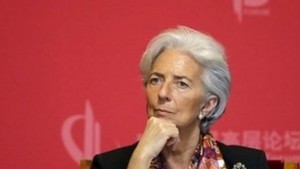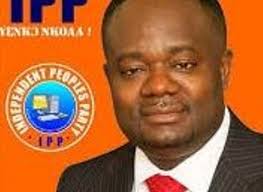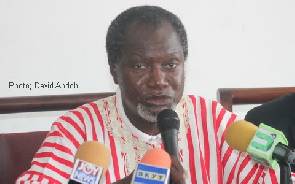 The Managing Director of the International Monetary Fund (IMF), Christine Lagarde has admitted that the real test for Ghana’s commitment to the current bailout programme would be 2016, which is the election year.
The Managing Director of the International Monetary Fund (IMF), Christine Lagarde has admitted that the real test for Ghana’s commitment to the current bailout programme would be 2016, which is the election year.
She said this in an online press briefing on Wednesday.
According to her, just like other countries across the world, election years are always difficult for countries under any programme because they struggle to meet their targets.
“…Whether it’s Ghana or any other country in the world, election years are always difficult for countries under program because they’re targets, because there are sometimes hard decisions to be made. Election years are not very conducive to those decisions, which is why for Ghana’s situation, a lot of the fiscal adjustment was frontloaded in 2015.”
The IMF was impressed with Ghana’s commitment to the current bailout programme after their first assessment of the country’s performance.
Christine Lagarde said because the fund anticipated the difficulties Ghana would encounter during the election year, a lot of what she called front-loaded fiscal adjustment have been done for 2015.
She concluded that a lot of the hard decisions have been taken, and hopefully, 2016 would be neutral.
“So many of the hard decisions have already been taken, which should hopefully make 2016 not a neutral year, but a year when the hard decisions are at a lower level. So I’m very hopeful that Ghana continues to deliver and continues to restore the economic stability that it had and is sensible about its borrowing capacity,” she added.
Government and economists have always attributed the country’s widening fiscal deficit to overspending during election years, a situation the bailout programme is expected to curtail.
In 2012 which was an election year, the country’s budget deficit reached about 12% of GDP and dropped to about 10.8% the following year.
“Fiscal consolidation is on track as of end-April, even excluding the payment of dividend by Bank of Ghana (about 0.4 percent of GDP) in March,” the IMF said after scrutinising government’s performance on the 2015 bailout programme.
The Finance Minister, Seth Terkper in his midyear budget review statement in Parliament disclosed that the current debt stock of the country stood at GHc90 cedis, representing 67.53 percent of GDP.





